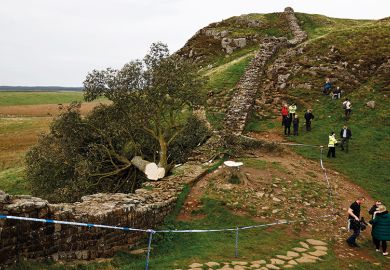Summertime,
And the living is easy
To the general public, those famous lyrics perfectly capture the academic life. A break from July until September or October is a luxury beyond their wildest dreams, and proof, in the popular imagination, that university teachers are a uniquely pampered class.
One of our contributors notes that it may indeed have once been possible for “dons” – as they would have been referred to then – to spend the entire summer touring the vineyards of France, even if their research had nothing to do with viticulture. But readers of Times Higher Education will be well aware that those days passed long before it became possible to buy a decent bottle of claret in Sainsbury’s.
As a new academic year starts, we asked a range of scholars from across the country to tell us what they did over the summer. The short answer is “a lot”. Between research, writing and administration there was little room for conventional holidays. And even when they did occur, they were typically brief and rarely involved complete severance from the academic grindstone.
Then again, some of those scholars who did get to lie on the beach in Marbella may find themselves envying some of the exotic field trips and intriguing extracurricular activities described in this article. The academic life may no longer be leisurely, but it is evidently still fascinating.

I know from previous experience that the word ‘just’ from senior management is a euphemism for ‘abandon your time to my will’
You can tell when summer holidays are approaching because the injunctions to “wind things up before the break” become frenzied and unreasonable.
I open my email throughout June with the same anxiety that I would feel ahead of sniffing a blocked drain outside a gastropub. Sure enough, my inbox is peppered with requests along the lines of: “Could you just let me have that strategy document by 19 June…please?” I know from previous experience that the word “just” from senior management is a euphemism for “abandon your time to my will”, and “please” is merely the fig leaf under which lurks the malevolence of a Balrog from the Mines of Moria. (I wonder if J. R. R. Tolkien drew from his experiences as an academic to craft his characters?) The fact that it is accidentally let slip that the demanded strategy document will remain on somebody’s desk, unread, until next term only deepens my resentment.
But the holidays are coming, so there will be time to catch up on the displaced work, won’t there? Well, the fact that I promised Oxford University Press in April that the book would definitely be completed by mid September slips my mind until the early hours of 3 July, when I wake from a particularly frightening dream involving a dentist who looks like Sir Laurence Olivier. So what do I do first – deal with the backlog or finish the book? I do neither because, having just moved house, I need to do essential renovations so that when the grown-up offspring visit they will have somewhere to sleep. The hurt looks I get when I tell them that their treasured “things” are still in boxes in the garage add to the feelings of guilt.
So I decide not to attend the “big meeting” in late July. Offended colleagues send emails that liken me to the foulest betrayer since Judas; even my “out-of-office” message solicits offence, with more emails flooding in demanding to know why I am being so “precious” with my time. But, by early August, the backlog is under control and a strange sense of calm descends as I turn my attention to the book. Then again, maybe I am just numbed into a cathartic trance by a broken dishwasher and a household full of adults who know how to use every item of crockery and cutlery that we possess, but not, apparently, how to put on a pair of rubber gloves.
By mid August, those promised few days by the sea in Dorset are looming, and I feel a flicker of genuine excitement as I anticipate relaxed reading, walks by the beach and going out in the kayak, followed by good food, fine wine and perhaps even some editing work on the book. But then an email pops into my inbox about a large, exciting funding initiative. Oh, and by the way, outline proposals must be submitted to the university within a few weeks for internal review.
After 31 years of marriage, I thought that I knew my soulmate consummately well, but even I am shocked by the string of expletives that assails me as I explain gently that “Dorset is off”.
Russell Foster is professor of circadian neuroscience at the University of Oxford.

The students and I work as equals, which is refreshing, and wellies are not normally considered essential in lecture theatres
Once academic boards are over for the year, I spend my summers working with a group of Teesside forensic science students delivering crime-scene-based workshops for children (and a few interested parents) at music festivals.
It’s an opportunity for the students to boost key transferable skills outside the classroom, such as public speaking, teamwork, networking and organising. It is also a chance for them to be part of a very enjoyable, unusual project – and maybe also to see their favourite band.
This year we had hundreds of children at the Latitude Festival in Suffolk solving the fictional murder of Hugo Fairfax, and hundreds more at the Deer Shed Festival in North Yorkshire investigating who killed Captain Clam Fandango. Our amazing set at Deer Shed was designed by our students, in collaboration with art students from Leeds City College.
In some respects, the scheme is quite a departure from my usual forensic teaching, in which I take the lead. The students and I work as equals, which is refreshing, and wellies are not normally considered essential in lecture theatres. But the content is still forensic-science-based, and it is a pleasure to see how professional and confident the students are in front of their audience, and how much each one personally benefits from some aspect of the experience.
Not that the experience was without mishaps: there were nearly tears at Latitude when one of the students realised that she had missed her hero Ed Sheeran’s unannounced appearance.
Helen Tidy is principal lecturer in forensic chemistry at Teesside University.

Navigating between icebergs was hair-raising, and carrying 200kg of equipment was exhausting, but the 24-hour daylight allowed us to work into the night
My summer started just outside the Arctic Circle, at Skeiðarárjökull in southern Iceland. Rapid glacier retreat has resulted in the formation of iceberg-infested lagoons, which my colleagues and I were anxious to survey. Navigating between icebergs was hair-raising, and carrying 200kg of equipment, including our boat and outboard engine, was exhausting, but the 24-hour daylight allowed us to work long into the night.
Being in Iceland was also a good opportunity to survey an outlet glacier of the Eyjafjallajökull volcano (the source of the ash cloud that closed most of European airspace in 2010) with a group of our undergraduates. While in Iceland, I learned that the Natural Environment Research Council had funded our application for an “urgency” grant to look at the impact of volcanically triggered mudflows during the massive eruption of the Calbuco volcano in Chile earlier this year. So it was full steam ahead to South America.
Our fieldwork there, carried out with Chilean colleagues, involved fording rivers in our 4x4 and working in cold, heavy rain most days. Much of my previous research has been in relatively uninhabited areas, but Calbuco’s proximity to populated areas brought me face to face with the destruction that mudflows can wreak on property, infrastructure and local economies.
Less than a week after our return from Chile, it was back to the Arctic with a group of colleagues and students, this time to the edge of the Greenland ice sheet to re-survey river channels at the edge of the Russell Glacier (no, not named after me!). This involved setting up camp 40km from the nearest settlement and commuting daily to the field site across the glacier or along caribou trails.
Glacier recession is generating natural hazards that have consequences not only for local populations but for the planet as a whole. It was sobering to see this at first hand.
Andrew Russell is professor of physical geography at Newcastle University.

I managed to read all 445 pages of Sachin Tendulkar’s autobiography to get some light relief from all the reports and circulars
One of the hazards of my neighbours’ knowledge of my profession is that if I am spotted in my garden in shorts during the summer, they automatically assume that I am putting my feet up for eight weeks.
In fact, it is a challenge to schedule a family holiday during the busy academic cycle. In this time of increasing market competition, there is no rest for the wicked. The publication of A-level results and the subsequent onslaught of clearing means that I like to be on site from early August onwards, so I took my holiday earlier.
Even then, during a week in Derbyshire, I resorted to driving to a service station that had wi-fi to stay in touch with the outside world. And my reading material on the beach in Marbella included the interview I gave THE on the importance of gender balance on governing bodies (“Governing bodies must be ‘more open’”, News, 30 July).
Naturally, it was no bad thing that my leave coincided with the Women’s Ashes test match at the Kent County Ground in Canterbury. Since the university is the proud sponsor of the Kent women’s cricket team, I considered it part of my “duty” to attend the all-important showdown between England and Australia. Staying with cricket, I also managed to read all 445 pages of Sachin Tendulkar’s autobiography to get some light relief from all the reports and circulars (as the newly appointed chair of the Higher Education Academy, the teaching excellence framework was constantly bowling me googlies).
So you might say that I didn’t have the most exciting of summers. But I am consoled that I at least avoided Operation Stack!
Rama Thirunamachandran is vice-chancellor of Canterbury Christ Church University.

This summer, David Cameron was spotted munching Pringles on an easyJet flight, en route to his second of three reported holidays. I don’t know how he finds the time
In British universities, the summer no longer exists. There was a time when the last graduation ceremony of July would herald a mass exodus of academics in a convoy of packed Volvo estates to the Channel ports — not to be seen again until mid September when the Volvos would return, impossibly burdened with boxes of competitively priced French wine.
Now, rather than a summer vacation, we have the phenomenon of “annual leave”. Academics, like all other corporate employees, are required to book their two-week “entitlement” and have it approved by their line manager. Universities are keen to account for the productivity of expensive human resource, and no one is quite sure when the summer begins and ends any more.
It is almost impossible now to find two spare weeks in July and August. This year, for me, multiple graduation ceremonies were followed by the publication and analysis of the National Student Survey results at the end of July. A-level results and clearing then came early, and the calendar of university committees began again after the August bank holiday.
I also seem to have spent a lot of the summer reviewing for the Arts and Humanities Research Council. I think that the staff at Polaris House were delighted to find someone who had made the mistake of not putting an out-of-office reply on their August email.
When I finally did get away, to a Greek island with my sons, I spent much of the time worrying about an overdue deadline for one of our respected university presses. I completed the article on the flight home, so as to clear the decks for a return to the manuscript of a book on philosophy and creativity.
This summer, David Cameron was spotted munching Pringles on an easyJet flight, en route to his second of three reported holidays. I don’t know how he finds the time.
Martin McQuillan is pro vice-chancellor of research at Kingston University.
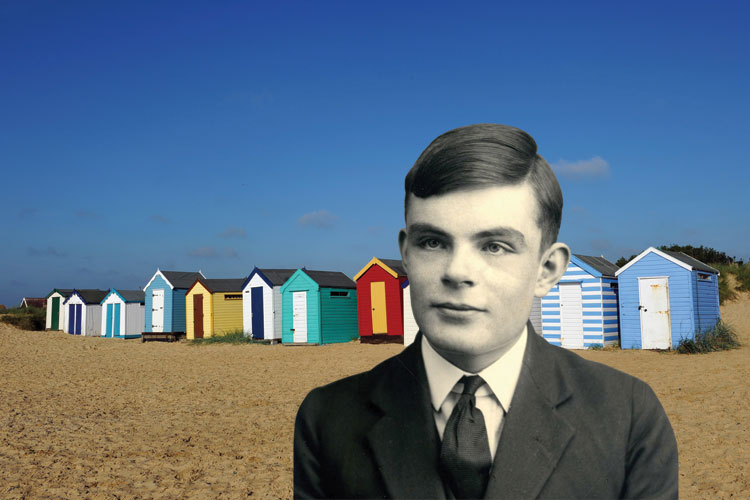
I spent three weeks at the Edinburgh Festival Fringe overseeing the production of my play about Alan Turing
While my day job is lecturing in law, you might say that my night job is being a playwright, and this also largely fills my holidays. This summer, for instance, I spent three weeks at the Edinburgh Festival Fringe overseeing the production of my play To Kill A Machine, about the mathematician and code-breaker Alan Turing.
But switching between roles is not like turning off one tap and turning on another. The two roles resonate. For example, both deal with words. So while my academic work looks at language and bilingual legal processes – meanings in one language being different from those in another – it’s also about how words are put together, how things are presented.
For me, writing is a way of exploring what people can and can’t say. Many of my characters have difficulty saying the right thing, none more so than Turing. He has his truth – he is a gay man – but a truth that is unacceptable to his contemporaries. Perhaps it is no surprise that themes of justice and fairness come through very strongly in my work, and I’m delighted that To Kill A Machine was nominated for an Amnesty International Freedom of Expression Award.
And it is true that my academic work and my creative life interact and cross-fertilise. For example, I ran a workshop with a local theatre company in which a group of students re-enacted the first bilingual case heard in the High Court, to explore alienation and inclusion in cases using translation.
But writing plays has some unexpected and less obvious influences, too. It has made me aware of the fluidity of rules: that there isn’t a right answer, merely a right answer for a time and place, which I emphasise in my teaching. The structure of a play is also surprisingly similar to that of much academic writing – you need a catalyst, you need a strong antagonist that you have to defeat, and you need a clear resolution.
Catrin Fflur Huws is a lecturer in law at Aberystwyth University and a playwright.

In between the work (every day in August contains some work), I eat ice cream, go cliff walking with friends and canines, go to gigs, galleries and dinner parties
Term ends late in July. I complete exam moderation by the end of that month and then head off to glorious South Wales for a summer of walking, working, writing, wine and well-wishers.
My employment contract states that I have many weeks of annual leave, but for me, and all the academics that I know, holidays are times to catch up on research and writing. One of my papers goes off to the Academy of Management conference in Vancouver, accompanied by my American co-author. As the academic director of recruitment for the full-time MBA, I continue to do late interviews over the summer via Skype or phone. Also, MBA students complete their final projects at this time, so supervision runs throughout August, via Skype meetings and email exchanges.
Once I get rid of two nagging journal revise-and-resubmits, a ton of administration and the programme for an early October workshop on physician leadership, I can start to indulge myself a little – with sun, sea and statistics! I take a deep dive into the data from our Leverhulme research project on the scientific work environment; I attempt to extend a theory to explain why expert leaders – in this case, doctors and psychiatrists – seem to improve organisational performance; and I have Skype meetings with my psychiatrist co-authors in Adelaide (conversations which, needless to say, also take in Australia’s Ashes defeat).
In between the work (every day in August contains some work), I eat ice cream, go cliff walking with friends and canines, go to gigs, galleries and dinner parties. A management faculty awayday and night in early September ends the summer recess, and we all, once again, fall into the fall.
Amanda Goodall is senior lecturer in management at Cass Business School, City University London.
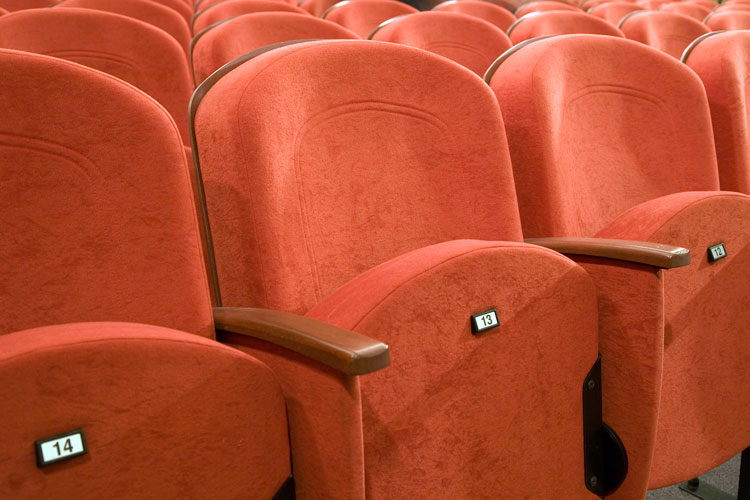
I ambitiously decided to recreate a historically accurate night at the cinema in the 1960s, complete with people eating Eldorado ice cream
The summer break from teaching represents an opportunity to get off campus and engage wider audiences with my work. Alongside juggling the demands of ongoing research projects and upcoming publication deadlines, I was also busy fulfilling the promises that I had made to present at conferences in Paris, Glasgow, London, Leicester and Ghent.
Outside the academic bubble, I prepared for a major public engagement project that will see my work on historical cinema-going staged as an immersive performance, with students playing various roles. I ambitiously decided to recreate a historically accurate night at the cinema in the 1960s, complete with people arriving halfway through the film, being shown to a seat by an usherette, licking away at an Eldorado ice cream, and either standing or rushing out the door when the national anthem played at the end. An event of this size requires complex planning, which is not always possible within the confines of a term-time schedule; I made many phone calls on trains between conferences trying to track down obscure cinema adverts or the details of publicity stunts, much to the bemusement (and occasional irritation) of my fellow passengers.
All that didn’t leave much time for holidays, but I did briefly catch sight of the sun during a student field trip that I led to San Diego to explore the nature, purpose and audience of the Comic-Con International, a major media and fan convention. Talking through the students’ experiences each evening and seeing them grapple with the relationship between what they had learned in the classroom and what they had seen in California reminded me why I spend so much of my summer dashing from city to city. Research has much greater value, both to the scholarly community and to wider society, when it engages directly with its broader contexts and audiences.
Matthew Jones is lecturer in cinema and television history at De Montfort University.

Now for some books – although none quite as cerebral or as pretentious as many of those recommended by other academics in THE’s Summer Reads!
The holidays start with a final flurry of the committee cycle: finance committee, senate and council. There is also the annual council/senate dinner, one of the highlights of the year at Loughborough University, to which we also invite external partners to thank them for their support.
But my favourite summer ritual is undoubtedly graduation, and the celebrations that surround the formal ceremonies. We welcome thousands of people on to campus, and many more tune in to our live webcast from around the world: one of the things that I’ve learned from our students is how social media bring us closer together.
Throughout the summer, there has been work with the Leicester and Leicestershire Local Enterprise Partnership. More than 1,100 people are already employed by the spin-offs and spin-ins on Loughborough’s thriving Science and Enterprise Parks, but we plan to double that over the next decade and are bidding with the LEP to become one of the government’s designated Enterprise Zones.
Then there is the mid-August flurry around A-level results time. Loughborough has put a particular effort into student recruitment this year, not knowing what the deregulation of student number controls might bring. All the effort has paid off: numbers and quality are both up. I get involved in open days, including the event that we run on the Saturday after A-level results, to support colleagues who make the occasions a success and also to meet prospective students and their parents.
One final piece of work over the summer has been preparing for the opening of our campus on the Queen Elizabeth Olympic Park: Loughborough University London. This is the most exciting venture the university has undertaken for some years. Our London staff have achieved what at first sight appeared impossible: delivered our estate, established research institutes and programmes, and recruited to the target number in our first year of operation.
But all that still left time for 10 days of annual leave: initially visiting the sites and sampling the tapas of Madrid, and then on the beach with some good books – although none was quite as cerebral or pretentious as many of those recommended by other academics in THE’s Summer Reads!
Bob Allison is vice-chancellor, Loughborough University.
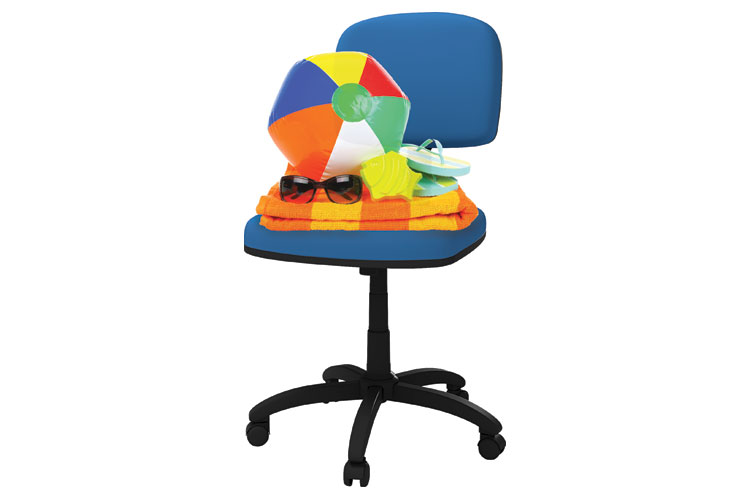
My office doesn’t have a window, but when you are reading you can sit outside. That’s the nearest to a poolside experience that I’ve had in years
“Teach in academia and have long, paid summer holidays,” they said. But after teaching stopped in May, I still had to mark, second mark, prepare materials for the assessment board, run assignment clinics and give study support tutorials to resit candidates. Only then could I think about using some of the seven weeks of annual holiday that we are assigned at the University of East London.
I usually take two full weeks off at Christmas and one at Easter, which, in theory, leaves four for the summer. But I only went away for a week during the last fortnight before teaching resumed in September. Why? Because I was still busy.
Academics are also supposed to engage with research, even if only to the point of keeping up with the latest writings in their subject area. And I had to write material for the forthcoming pilot of our new distance learning course in creative writing for prisoners, delivered in collaboration with the arts charity Not Shut Up. Then there was clearing and the need to interview candidates for our extended degree, which offers an extra year to those without the necessary Ucas points.
But, to be honest, I kind of like working during the summer months. Our Docklands campus is really gorgeous in full sunshine. My office doesn’t have an outside window, but when you are proofing paperwork or reading, you can sit outside, beside the dock, with a coffee. That is the nearest to a poolside experience that I’ve had in years.
Anna Robinson is a senior lecturer in the School of Arts and Digital Industries at the University of East London.

There was no escape from the keyboard. The most popular topic of conversation was how many words everyone had written
Summer is when I get to concentrate on the most fun, challenging and rewarding part of my job – writing. It is one of the few spaces in the academic calendar when I have adequate time to think through big projects or complicated concepts.
To that end, I carefully avoid distractions such as holidays, administration, marking, PhD supervision, workshops, journal editing and reviewing. But then I typically squander the freed-up time by procrastinating. The weeks seem to stretch out before me in terrifying emptiness and I convince myself that analysing the latest National Student Survey results is urgent, or that it really is time that I made a batch of chutney. I suddenly become timely in responding to emails, and catch up on my filing. By the time I get into the swing of serious writing, the summer ends in a gaggle of conferences.
This year, in an effort to stay focused, I went to a writing retreat in rural Devon. The historic house overlooking the village square had six quiet, rustic rooms with everything a writer needs – desk, lamp, endless tea and coffee, and a comfy bed. There was no escape from the keyboard. The most popular topic of conversation was how many words everyone had written, and the fiction writers by whom I was mostly surrounded can easily churn out 5,000 words a day. My competitiveness kicked in.
But it wasn’t all about quantity. Writing side by side with highly articulate, intelligent people also compelled me to up my game in terms of quality. Being asked to explain what I was writing about forced me to clarify my thoughts to myself. Best of all, though, was the encouragement I got from the retreat owners, Deb and Bob. Their mixture of good humour and gentle nudging constantly reminded me why I was there – and their endless supply of banana bread helped me to fulfil that purpose.
Jenny Pickerill is professor in environmental geography at the University of Sheffield.
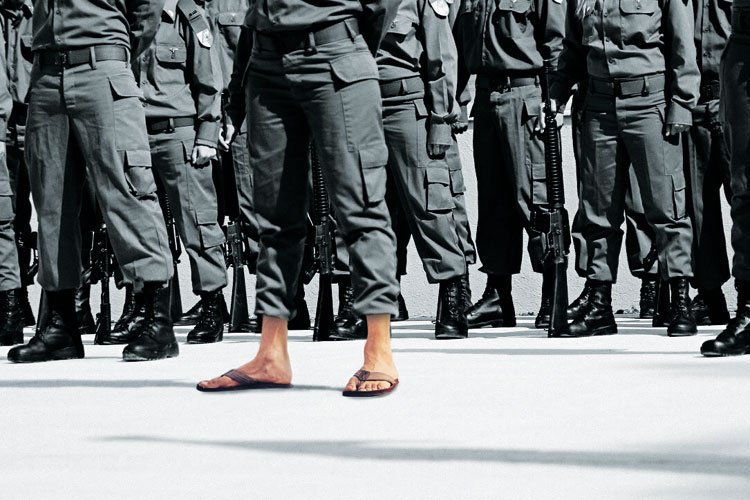
The courage and honesty of these veterans is breathtaking and I feel honoured that they are finally getting to tell their stories through me
My work over the summer was to interview transgender veterans of the British armed forces in their home environments. It’s been the most challenging and exhilarating project that I’ve ever worked on.
Although I’m a historian of sexuality and gender, I’m also an oral historian. It’s a fascinating, sometimes frightening, process. You’re never quite sure what and who you might encounter, and it’s such an ephemeral source. Get the interview right and you have two hours of amiable conversation. Get it wrong and you end up with rehearsed responses and one-way dialogue. I’d like to think that I’m adept at it now. I’ve also become good at drinking cold tea. As my former PhD supervisor remarked: “As long as it’s wet it doesn’t matter.”
I’ve always been interested in how LGBTQ people have experienced the armed forces before 2000, when the ban was finally lifted on their open service. My first book, Queen and Country, explored the intersection between same-sex desire and military authority between 1939 and 1945. Since then, I’ve been finding out how personnel who identified as trans experienced service life and how they were conceptualised institutionally before 2000. There is no other way of finding this out without speaking to the men and women who served; the Ministry of Defence simply did not have a formal policy, so trans personnel were treated inconsistently, on a case-by-case basis. A small handful were allowed to transition while in service, but the vast majority were discharged, usually on the grounds of indecency: the catch-all term for expressions of same-sex desire.
I’m also collaborating with a photographer, Stephen King, who is producing a series of portraits of my interviewees that will be exhibited at the Homotopia festival in Liverpool and Outburst Queer Arts Festival in Belfast. I couldn’t be prouder. The courage and honesty of these veterans is breathtaking and I feel honoured that they are finally getting to tell their stories through me.
Emma Vickers is senior lecturer in history at Liverpool John Moores University.
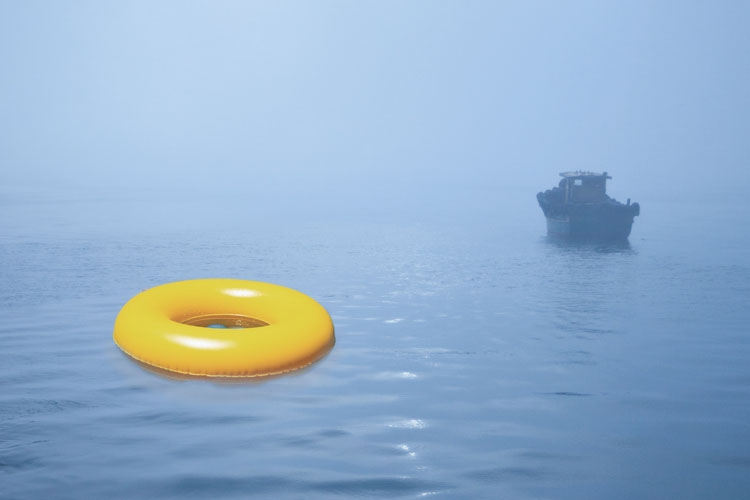
It was an intense experience – two months on a small boat with a small group of people, not all of whom adapted well to life on board
I’m a Himalayan geologist, so I typically spend most of my summers on expeditions to the mountains collecting samples. It’s a time of year that I love. The isolation and beauty fill me with a sense of tranquillity and joy, and the associated challenges require a single-minded focus into which the myriad pressures of my working life back home cannot intrude.
This year, however, my summer was different. I went on an International Ocean Discovery Program expedition to the Bay of Bengal, where a team of more than 30 international scientists drilled into the seabed to recover sediment eroded from the Himalayas.
It was an immensely rewarding and intense experience – two months on a small boat with a small group of people, not all of whom adapted well to life on board! In some ways the structured routine of our days made life easy: 12-hour shifts in the lab, followed by a film or the gym, and then bed. But the isolation from “normal life” magnified the focus on our scientific objectives, which meant setbacks became all-consuming.
The “nowhere to hide” scenario was a double-edged sword – it forced the forging of new scientific collaborations and strong friendships, but it also intensified the usual conflicts of interest between scientists’ collective and personal research goals. Certain parts of the 3km of sediment core that we recovered were critically important and we all wanted samples; learning to share was not easy for some.
We did have contact with the outside world via Skype (as well as email), but the poor sound quality, lack of privacy and the 15-minute limit on bookings meant that I was never sure that I had adequately conveyed my feelings to those at home.
However, when it was time to return, there was a tinge of sadness at leaving the people with whom I had shared everything for the past eight weeks. And as I sat analysing the samples back in Lancaster, there was part of me that couldn’t wait for our September reunion for more sampling at the purpose-built warehouse in Japan where the sediment core is stored.
Yani Najman is reader in tectonics and sedimentation at Lancaster University.

I substituted the casual jacket and chinos for boiler suit, goggles and steel-capped boots
As an artist and academic, research and practice are intertwined. Ideas that exist as thoughts or sketches are constantly tested in the studio, and this flows back into both teaching and further research. However, each process brings its own demands, and there are occasions when a concentrated focus is required.
This summer, I was determined to resolve a number of small sculptures that I had been developing over the preceding months. So, for a few weeks, I substituted the casual jacket and chinos for boiler suit, goggles and steel-capped boots and closeted myself in the very well-equipped metal foundry at Chelsea College of Arts.
The generosity and enthusiasm of the foundry’s director, John Nicoll, creates an environment that is welcoming and professional. I enjoyed the sense of community, working together with the final-year MA students as they prepared for their final show.
The process of casting is long and complex, involving “investing” the wax originals by attaching wax rods to enable the metal to flow, preparing the piece for pouring, then digging out the casts from the sandpit. Working directly in the foundry allows me to respond to each stage, modifying and fine-tuning the pieces until they are complete. Despite my impatient nature, this is a process that cannot be rushed.
The process of casting itself impacted on the actual sculptures I ended up making. Thinking about how the metal flowed round the sculpture led me to incorporate aspects of this in the making of the sculptures, and I increasingly thought of them in terms of fluid lines, and drawing with the metal. It was a highly productive few weeks.
Paul Coldwell is professor of fine art at Camberwell, Chelsea and Wimbledon Colleges of Art, University of the Arts London.

What was most encouraging was the emergence of similarities among supposedly very different human beings
Throughout my career I have been haunted by the question of how we can help children traumatised by experiences such as domestic violence, abuse and neglect or homelessness. A lot of evidence and good practice has emerged recently to make me optimistic – at least about countries with developed welfare and health systems.
But could we apply similar solutions in the absence of statutory agencies? My hunch was that a holistic approach would be most effective, targeting the child, their family, school and community, with charities playing an even more instrumental role than they do in Western societies. But we needed more evidence.
That is why I spent my summer establishing child trauma training programmes. Having already visited India, Turkey and Kenya for this purpose in the spring, I followed up with trips to Iran and Greece.
The visits were gruelling. In just five days I had to get to grips with local issues and cultures and then integrate our ideas with those of the communities. This involved bringing together statutory and non-statutory organisations, establishing sustainable networks and equipping volunteers and staff with key skills in recognising and managing child mental health difficulties. No matter how extensive my preparation was, ultimately I had to adapt and respond quickly to new suggestions, and this was really exciting.
The results were astounding, not merely in generating interest in the issue but, crucially, in demonstrating that communities were innovative in their approaches and ready for more focused, evidenced and applied skills. What was most encouraging was the emergence of similarities among supposedly very different human beings and their support systems.
Having also had successful meetings this summer with partner organisations and potential sponsors, we hope to build on these similarities during a world campaign next year.
Panos Vostanis is professor of child psychiatry at the University of Leicester.

We were responsible for the scientific part of the ‘Tate Sensorium’, working alongside a master chocolatier, a sound engineer and a perfumer
In my 10 years as an academic, I’ve never had a quiet summer. For me, these bright months are the time to understand more, so that we fear less – to paraphrase Marie Curie.
This summer was particularly extraordinary. My team and I at the Sussex Computer Human Interaction Lab worked on a major new installation at Tate Britain in London that uses new techniques to engage our senses of smell, taste, sound and touch. We were responsible for the scientific part of the “Tate Sensorium”, which opened at the end of August. Working alongside a master chocolatier, a sound engineer and a perfumer, we applied our research into mediating emotions through haptics: a technology that uses focused ultrasound to create tactile sensations in mid-air.
Collaborating with such a range of people – all with varying requirements – was extremely demanding, but it was a unique opportunity for us to expand our understanding of sensory experience with new technology in a real-world context. Such projects further stoke our passion for research and allow us to inspire students when we begin teaching again.
Summer is also the time of year I think back to the corresponding season in 2005, when I drove around the countryside of Salzburg interviewing people about interactive TV, and the scorching summer of 2010 I spent writing the proposal for the Marie Curie fellowship that brought me to England. For me, summer is demanding, intense and enthralling. It is also when I do my best work.
Marianna Obrist is lecturer in interaction design (informatics) at the University of Sussex.
POSTSCRIPT:
Print headline: Lazy, hazy, crazy days
Register to continue
Why register?
- Registration is free and only takes a moment
- Once registered, you can read 3 articles a month
- Sign up for our newsletter
Subscribe
Or subscribe for unlimited access to:
- Unlimited access to news, views, insights & reviews
- Digital editions
- Digital access to THE’s university and college rankings analysis
Already registered or a current subscriber? Login



